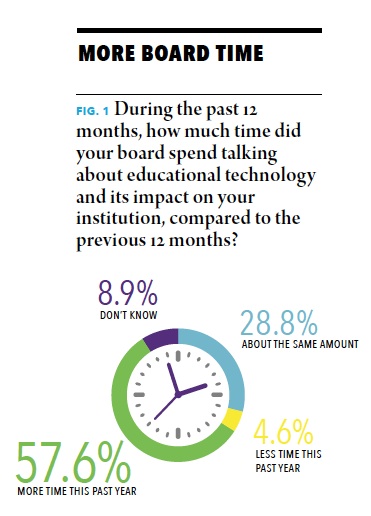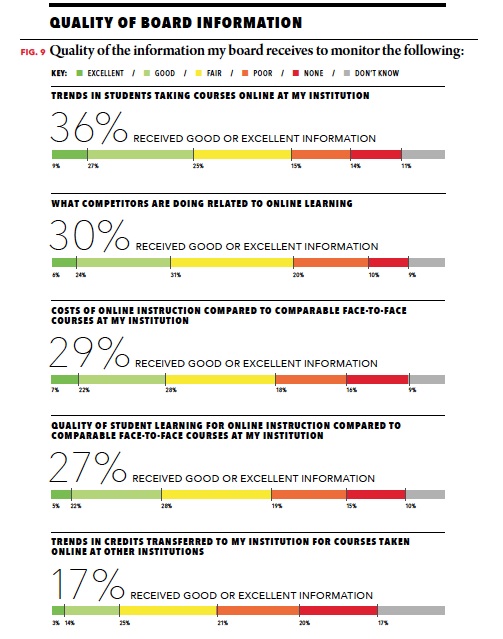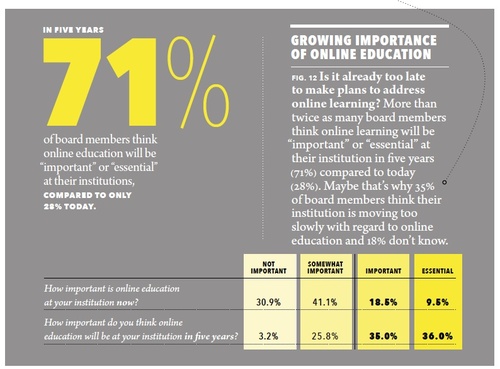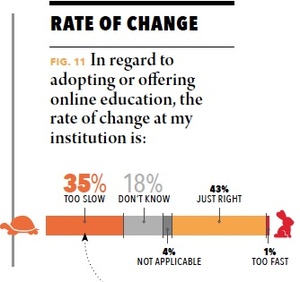Technology is constantly changing, making it difficult for even the savviest of tech enthusiasts to keep current. From the latest apps to the newest smartphones, it's a steep and continuous learning curve. For universities and colleges, rapidly changing technology presents further challenges for educating students.
Most college and university governing board members are between 50 and 69 years old and are not digital natives, yet these leaders are responsible, along with their presidents, for answering important questions on educational technology:
•Should we explore or expand online courses, degree programs, or Massive Open Online Courses (MOOCs)?
•How should we invest in hardware, software, and humanware?
•Should we beat the competition to it, or learn from the mistakes of early adapters?
•Most importantly, what do we need to do now?
There's a growing concern among the board members of our nation's colleges and universities as to whether they are adequately prepared to make strategic recommendations and decisions on the role of technology in their institution's educational offerings.
To address these concerns, the Association of Governing Boards of Universities and Colleges (AGB) conducted a survey of more than 2,000 board members of both public and independent universities and colleges to examine board perceptions of their institution's educational technologies and their preparedness to keep up with technological advances in the future. The findings might be surprising to some but should act as a guidebook for technology and academic decision-makers in higher education.
More than twice as many board members think online learning will be "important" or "essential" at their institution in five years as compared to today.
However, more than one-third of board members think their institutions are moving too slowly with online learning.
Nearly two-thirds of boards are spending more time on instructional technology issues.

But only one-third of boards are getting board-level information on online learning that they consider excellent or even good.

This survey shows that governing boards understand the significance of providing the latest educational technology to students; however, boards aren't receiving the valuable and timely information they need in order to make, in conjunction with their presidents, sound decisions affecting appropriate technology policy. While it may be difficult for institutions to keep up with our world's ever-changing technological landscape, governing boards and institutional leadership must decipher what needs to be done immediately and in the long-term to provide a progressive and challenging learning environment for students. This gap could be bridged through a variety of different methods, from bringing in outside technology consultants to do a remodel of the institution's internal technology team to a third-party audit of current technology offerings; there's no one-size-fits-all solution.
Universities and colleges must figure out how to effectively and economically leverage technology to both improve learning outcomes and educate more students. As noted in AGB's "Top 10 Strategic Issues for Boards, 2013-2014," the real question is not whether technology and online learning are game changers for colleges and universities but rather how extensively they will transform higher education and how quickly.

